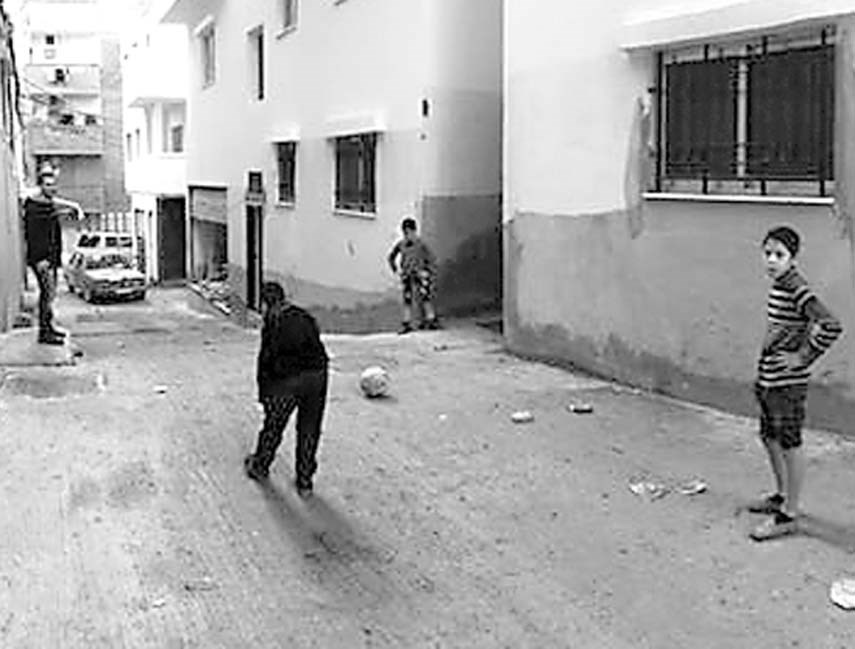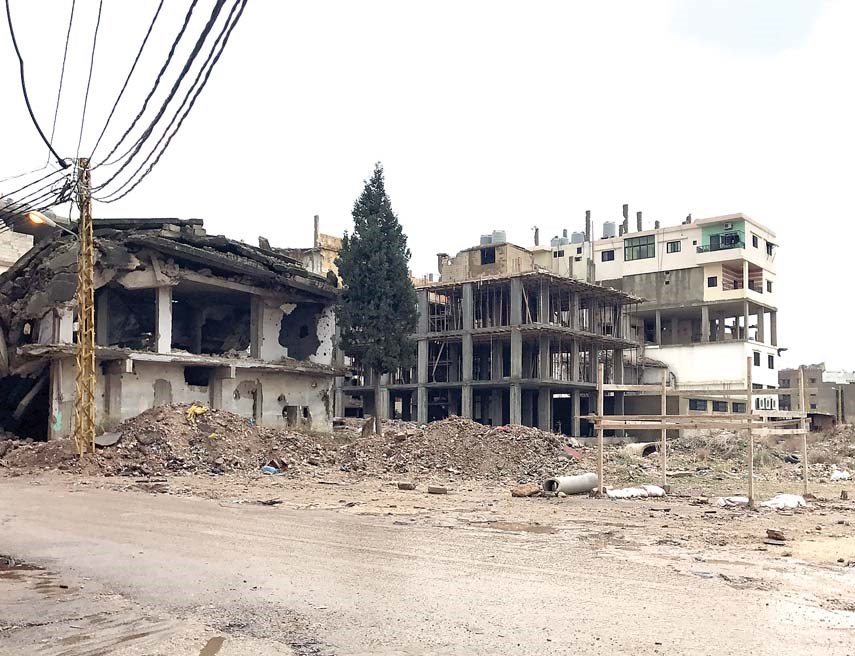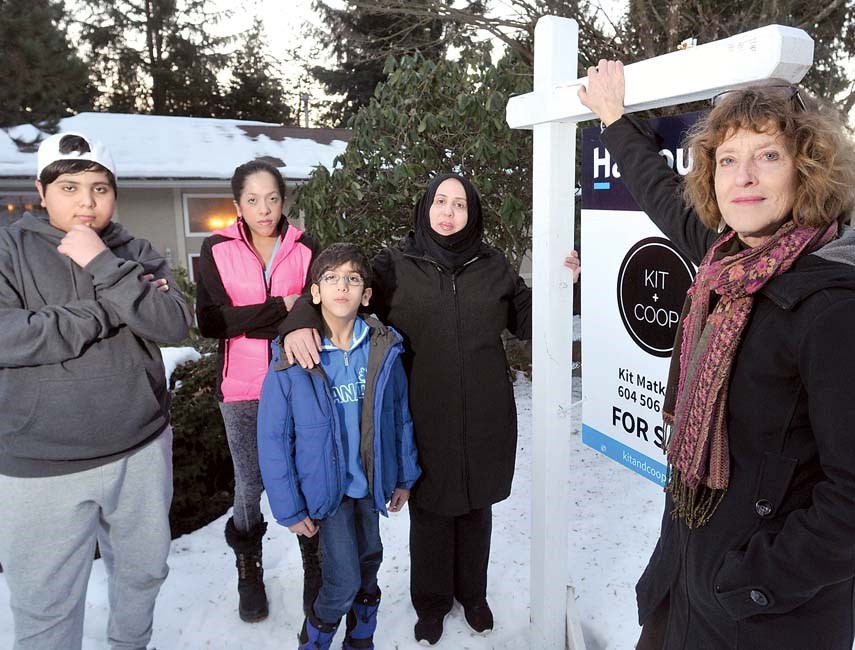“The sky was a chaos of black and flesh-colored clouds with an ugly sunburst beyond a hooded hill. … With a stick and their hands the women had tried to dig a roadside grave, but the soil was too hard.”
– Vladimir Nabokov, That in Aleppo Once …
In a Lebanese refugee camp four kilometres from the Syrian border, the family embraced her.
She’s a North Vancouver financial adviser. But somehow, 10,000 kilometres from home and surrounded by checkpoints manned by machine gun-toting teenagers, looming tanks and Beirut’s bombed-out buildings, the Abdulhafiz family made Gulnar Carlisle feel like royalty.
Still shaking off jet lag from her trip to Lebanon, Carlisle describes the 13-year-old boy who held his umbrella over her head, the 11-year-old who says he loves her to infinity, and the nine-year-old who wants to get her hair cut just like Carlisle’s – as soon as she gets to Canada.
For 10 months Carlisle has been working to bring the family to North Vancouver, but so far to no avail.
“They’re such a lovely, loving family and they so badly want to come to Canada,” she says.
Approximately 11 million Syrians have been displaced since civil war erupted in 2011. These days, the Abdulhafiz family gets by on food vouchers and the $30 a week their eldest son earns at a bakery.
And they wait.
They’re honing their English skills on Carlisle’s old iPad, learning about Canada and just about every day they ask Carlisle the same question: “Any news?”
Their lives are like many denizens of Nahr el-Bared. On her recent trip, Carlisle was assisted by a translator who was born in the 1940s-era camp.

“Thirty years later he’s still here.”
After two unsuccessful attempts, Carlisle says the family’s paperwork was finally submitted at the end of November.
“People have said to me that Canadians are suffering … we should be helping our own first,” Carlisle acknowledges. “But it’s not the same. … Families have been devastated … many men have been killed, all the children have no education, they have no place to stay. It’s just not the same as poverty in Canada.”
The family’s middle-child, Hadi, was recently assaulted. His appendix was ruptured but the doctor wouldn’t operate until he was paid.
Asmaa, the mother of the family, sold their appliances in order to get enough cash to save her son.
“They survive day to day,” Carlisle explains. “They say to me there is no hope for them. None of the kids go to school.”
Asked about why she made the trip to Lebanon, Carlisle admits she isn’t quite sure.
“Something just made me go, and I’m so glad I did.”
They went to a Christmas festival and watched the children have their faces painted. They lit candles together and they prayed.
The family is hoping to settle down in Blueridge, hopefully close to their extended family, also named Abdulhafiz.
• • •
It’s been a little more than one year since the other Abdulhafiz family (the patriarchs are brothers) touched down at Vancouver International Airport.
It was the culmination of a journey of more than four years for the family of five.
After 18 years of scrimping and saving they were finally able to afford a house in Syria. It was bombed the next month.
As civil war erupted, possibly precipitated by the region’s worst drought in 900 years, the family made the journey from Damascus to Beirut with Honada, the family matriarch, carrying her youngest son Ibrahim in her arms.
One year after arriving in Canada, the family is still struggling.
Nour, the family’s 18-year-old daughter, and Ibrahim both have developmental disabilities. Honada has suffered from dizziness and high blood pressure and recently needed her gall bladder removed.
But despite it all, Honada’s smile is brilliant and unfaltering as she welcomes me into her home.
“I am very, very happy,” she says, frequently alternating between Arabic and English with a little help from oldest son Ahmed. “Everything is beautiful in Canada.”
Honada favours traditional dress but says Canadians seem understanding.
“Hijab? No problem,” she says, smiling again.
That smile is also in evidence as Cynthia Bunbury, a family friend and sponsor, discusses Nour and Ibrahim.
“In both Syria and Lebanon it was very difficult for them to go to school but here they’re welcome.”
The family received a boost from the City of North Vancouver, as Mayor Darrell Mussatto recently pushed the federal government to ensure sponsors can welcome refugee families within three months.
Mussatto recently penned a letter to Prime Minister Justin Trudeau urging quick action on the matter.
“I just want to make sure that if they’re coming here that we provide the resources and support that they need,” Mussatto said at a recent council meeting. “We are a welcoming community.”
But despite the warm welcome, the family still faces the North Shore’s often unforgiving real estate market, notes Bunbury.
“They lost everything, so to come here and to have a home is a big thing,” she says. “And now they don’t have a home again.”
After 12 months in Blueridge, the lease on the house they’ve been renting runs out Feb. 1.
“We now face the fact that we might have to go somewhere else,” Bunbury says.

For Ahmed, who gamely translates for his mother and resists the urge to play Crush Royale during the interview, the notion of moving is a sore spot.
“I would feel sad because all my friends are here,” he says.
Honada agrees, noting that her relatives in Italy and Germany haven’t received the same warmth she’s found in Canada.
The Regional Ecumenical Sponsorship Team, the settlement group of which Bunbury is a member, have a few leads on a new house but availability and price have ruled out most options.
“We won’t abandon them. They are still our family members,” Bunbury says.
The family received approximately $1,200 a month from the federal government during their first six months in Canada, according to Bunbury. But at the one-year mark, the federal government essentially cedes responsibility to the provincial government.
“We have to make sure that all of the paperwork is filled out so they don’t slip through the cracks,” Bunbury says. “Many of these families, there’s no way they’re supporting themselves after one year.”
However, the Abdulhafiz family has made great strides, with Honada looking for catering work and Said recently finding work in West Vancouver.
“He’s just got a construction job in West Vancouver and we think it’s full time,” Bunbury says.
While the Abdulhafiz family’s future is uncertain, their prospects have been somewhat buoyed by the recent expansion of REST.
After starting as a collection of North Shore churches, the group has grown in size and in faiths represented, with the recent addition of the Ismaili Jamatkhana as well as a Vancouver synagogue.
“We recognize that there’s lots of people out there that don’t have the advantage of having this network, this family that we’ve created,” Bunbury explains.
She’s still hopeful the family could stay on the North Shore.
“We’re hoping that we can come up with something.”
• • •
Dianne Semark felt much the same way.
She’d seen images of refugees crammed into tents in Athens, but hadn’t considered what she might do about it.
“(I’d been) frustrated because of politics that are happening, you know where,” she said, referring to a certain newly inaugurated president.
Semark was going about her daily work with Mountain Equipment Co-op when an email from an old friend working for Google popped up.
Google was hard at work on an app intended to provide accurate information in multiple languages for refugees.
But what about the people who were in danger of freezing?
“I can help. This is something I can do,” Semark recalls thinking.
She collected 151 pieces of warm clothing, jackets and pants for infants, toddlers, youth and adults. MEC agreed to foot the $1,200 shipping bill, but it seemed like something was missing.
“All this gear that I’m sending is really great, but what about something a little more friendly, more human?” she wondered.
Semark contacted her daughter’s teacher at Canyon Heights elementary and asked if she might be interested in taking part. The class went to work immediately, sketching rainbows and unicorns for what Semark calls the Notes for Coats campaign.
She recalls one little girl who wrote: “I’m so sorry for everything you’ve lost, I hope that this drawing brightens your day.”
The first shipment of coats arrived Friday, and another one is one the way, according to Semark.
• • •
Back in Blueridge, the Abdulhafiz family is united on one thing: they picked the right country.
They were outside an Iranian grocery shop in Central Lonsdale recently when there was a misunderstanding over where they were from, Honada explains.
Walking away, she says her youngest son told her: “No Iraq, no Syria, no Lebanon.”
“Where are you from, Ibrahim?” she recalls asking him.
“I am from Canada.”



